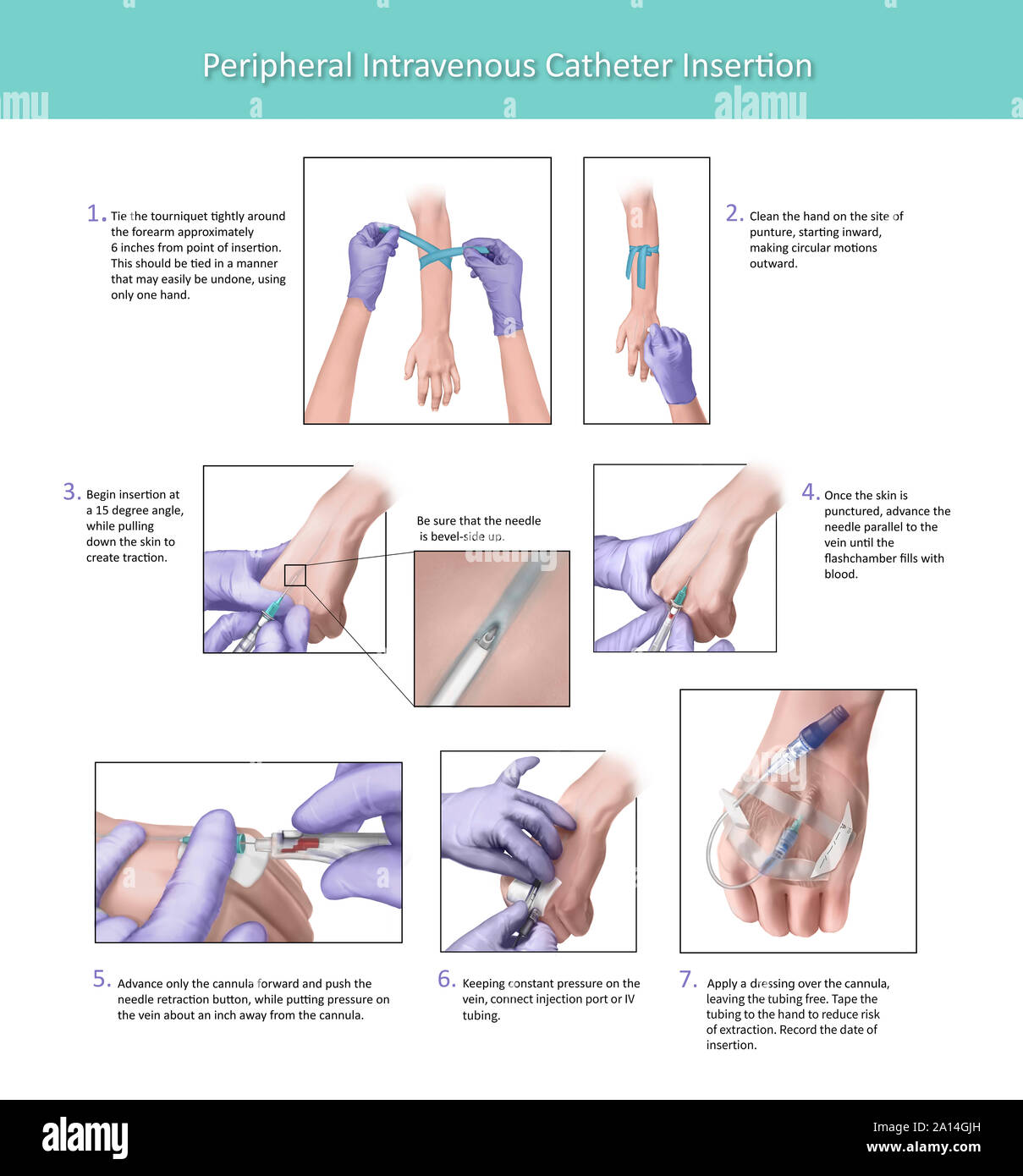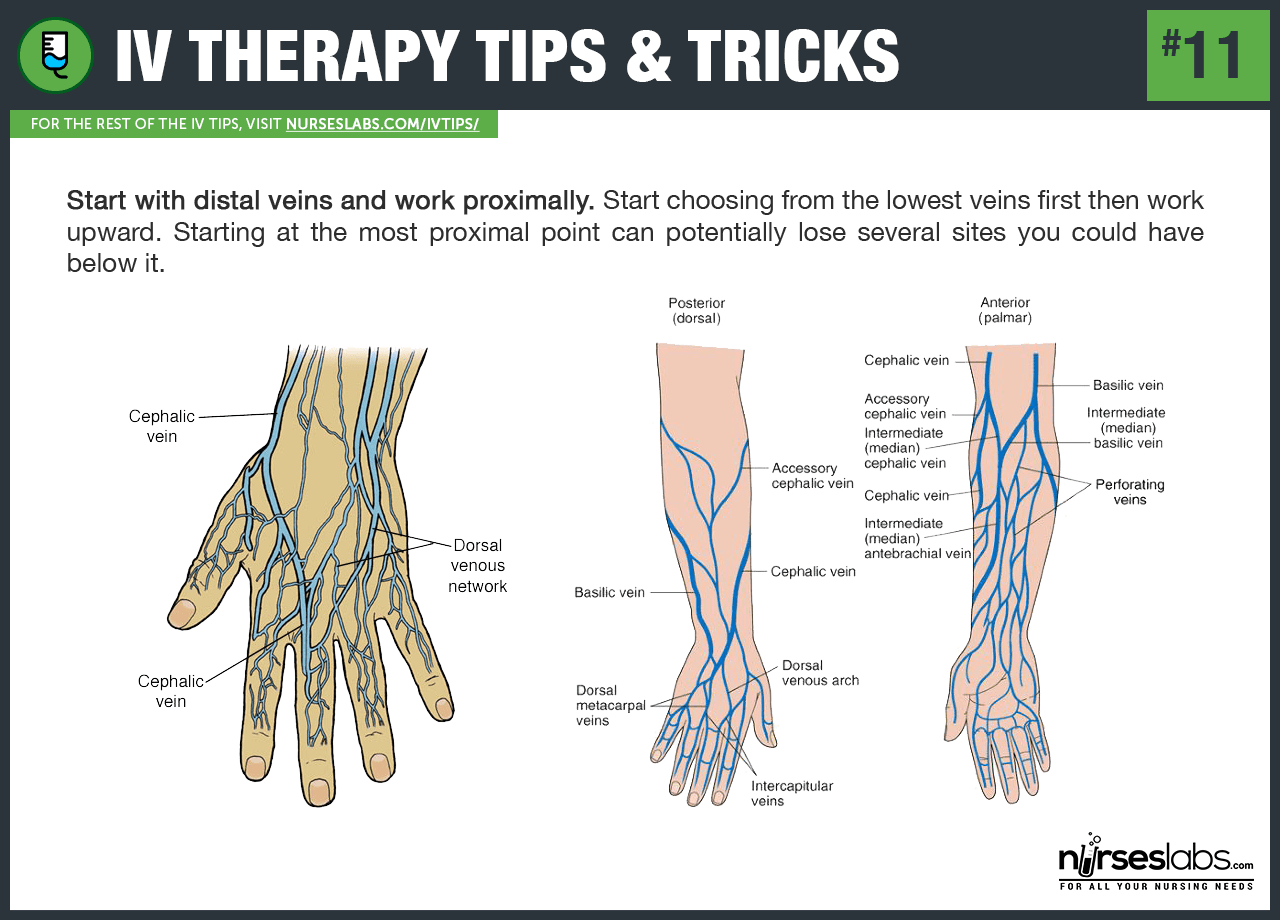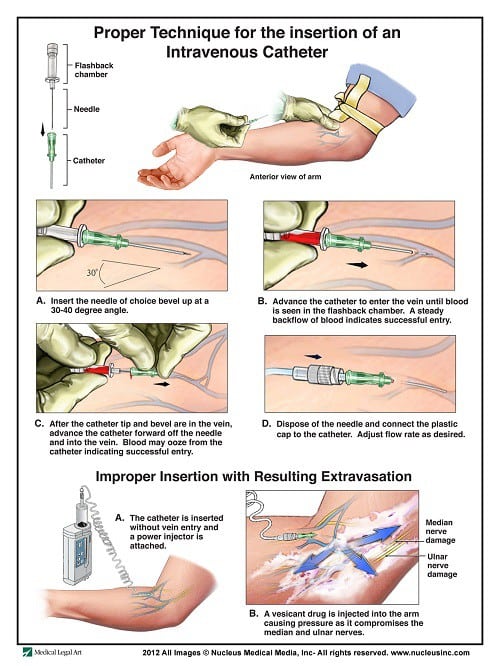Site Of Intravenous Catheter Insertion And Blood Draws
Site Of Intravenous Catheter Insertion And Blood Draws - Blood samples may be drawn from relatively large veins, immediately following insertion only: Web site of intravenous catheter insertion and blood draws a) femoral triangle b) posterior triangle c) medial bicipital furrow d) cubital fossa e) supracristal line d marks the lateral margin of the rectus abdominis a) femoral triangle b) inguinal ligament c) linea semilunaris d) midclavicular line e) anatomical snuffbox It leads to your vena cava, a large vein that empties into your heart. Web peripheral intravenous catheter insertion, maintenance, and removal table of contents critical points supplies procedure insertion maintenance removal of iv catheter documentation references appendix a: In the above situations, use another site (eg, the opposite arm) for venipuncture. Drawing blood from a peripheral intravenous cannula and its effect on cannula dwell time, phlebitis, and bloodstream infection: Web intravenous catheter distal to a prospective venipuncture site (may affect laboratory results if iv fluids or drugs are infusing distal to the venipuncture site) arteriovenous graft or fistula. Obtaining blood samples from peripheral intravenous catheters: Establish whether hemolysis in samples collected from intravenous lines is influenced by catheterization site. Blood samples may be drawn from relatively large veins, immediately following insertion only: Change only when clinically indicated: The world health organization (who) publishes the first global guidelines to prevent the occurrence of bloodstream and other infections caused by use of catheters placed in minor blood vessels during medical procedures. Web new guidance aims to reduce bloodstream infections from catheter use. Drawing blood from a peripheral intravenous cannula and its effect on cannula. Change only when clinically indicated: A butterfly needle is a device used to access a vein for drawing blood or giving medications. Web a central venous catheter (cvc) is a long, flexible tube your provider inserts into a vein in your neck, chest, arm or groin. Advance the needle slightly into the vein after flashback is observed to ensure the. Advance the needle slightly into the vein after flashback is observed to ensure the needle tip and cannula are inserted into the vein. Blood cultures may not be taken from a pivc: Blood samples may be drawn from relatively large veins, immediately following insertion only: Web new guidance aims to reduce bloodstream infections from catheter use. Web why it's done. A picc line is used to deliver medications and other treatments directly to the large central veins near your heart. After a provider inserts a peripheral iv, it can remain in place for several days, which prevents the need for repeated needle sticks. Establish whether hemolysis in samples collected from intravenous lines is influenced by catheterization site. Local skin infection,. Peripheral intravenous cannula (pivc) insertion, care and. Web venipuncture involves the process of introducing a needle into a client’s vein to collect a blood sample or insert an iv catheter. Your doctor might recommend a picc line if your treatment plan requires frequent needle sticks for medicine or blood draws. Web peripheral intravenous catheter insertion, maintenance, and removal table of. Local skin infection, inflammation, trauma or burns. The initiation and maintenance of a peripheral venous access includes selecting an appropriate site, selecting an appropriate iv catheter and size, establishing iv access, and monitoring for potential complications. Lower the catheter until almost flush with the skin. Web peripheral intravenous catheter (pivc) guideline: Web why it's done. Peripheral intravenous cannula (pivc) insertion, care and. Lower the catheter until almost flush with the skin. Blood samples may be drawn from relatively large veins, immediately following insertion only: Some medical professionals call a butterfly needle a “winged infusion set” or a “scalp. Piv insertion resource algorithm appendix b: Your doctor might recommend a picc line if your treatment plan requires frequent needle sticks for medicine or blood draws. Some medical professionals call a butterfly needle a “winged infusion set” or a “scalp. See figure 1.1 [ 1 ] for an image of venipuncture. Drawing blood from a peripheral intravenous cannula and its effect on cannula dwell time, phlebitis,. Web why it's done. A variety of central venous catheters and devices are available to achieve such access, each with its own risks and benefits. Piv insertion & phlebotomy request expectations The initiation and maintenance of a peripheral venous access includes selecting an appropriate site, selecting an appropriate iv catheter and size, establishing iv access, and monitoring for potential complications.. Piv insertion & phlebotomy request expectations After a provider inserts a peripheral iv, it can remain in place for several days, which prevents the need for repeated needle sticks. Web puncture the skin and anterior vein wall, watching for blood to appear in the catheter, flashback chamber, or both. For adult patients, the most common and first choice is the. Local skin infection, inflammation, trauma or burns. Web intravenous catheter distal to a prospective venipuncture site (may affect laboratory results if iv fluids or drugs are infusing distal to the venipuncture site) arteriovenous graft or fistula. A variety of central venous catheters and devices are available to achieve such access, each with its own risks and benefits. Consider central venous access in this situation. Peripheral intravenous cannula (pivc) insertion, care and. A picc line is used to deliver medications and other treatments directly to the large central veins near your heart. After a provider inserts a peripheral iv, it can remain in place for several days, which prevents the need for repeated needle sticks. Web peripheral intravenous catheter insertion, maintenance, and removal table of contents critical points supplies procedure insertion maintenance removal of iv catheter documentation references appendix a: Web study with quizlet and memorize flashcards containing terms like site of intravenous catheter insertion and blood draws, depression defined by the inguinal ligament, sartorius, and adductor longus muscles, a triangular depression on the anterior surface of the elbow and more. Web peripheral intravenous catheter (pivc) guideline: Drawing blood from a peripheral intravenous cannula and its effect on cannula dwell time, phlebitis, and bloodstream infection: It also helps with blood draws. See figure 1.1 [ 1 ] for an image of venipuncture. Web new guidance aims to reduce bloodstream infections from catheter use. Web site of intravenous catheter insertion and blood draws a) femoral triangle b) posterior triangle c) medial bicipital furrow d) cubital fossa e) supracristal line d marks the lateral margin of the rectus abdominis a) femoral triangle b) inguinal ligament c) linea semilunaris d) midclavicular line e) anatomical snuffbox Blood samples may be drawn from relatively large veins, immediately following insertion only:
PICC Line Blood Draw Explained E Phlebotomy Training

Central Line Insertion and How to Draw Blood — From New to ICU

BD Nexiva™ Single Port Closed IV Catheter Insertion Techniques YouTube

How To Draw Blood A StepbyStep Guide

55 IV Therapy Tips and Tricks How to Hit the Vein in One Shot

Central Venous Catheter Placement ewlartdesign

Intravenous catheter insertion hires stock photography and images Alamy

55 IV Therapy Tips and Tricks How to Hit the Vein in One Shot

Intravenous Cannulation (IV) — Medistudents

50 Intravenous Therapy (IV) Tips and Tricks For Nurses
Am J Crit Care 1 September 2009;
Lymphedema Or Dvt In The Extremity Of The Iv (Choose Another Extremity)
Web A Central Venous Catheter (Cvc) Is A Long, Flexible Tube Your Provider Inserts Into A Vein In Your Neck, Chest, Arm Or Groin.
Obtaining Blood Samples From Peripheral Intravenous Catheters:
Related Post: